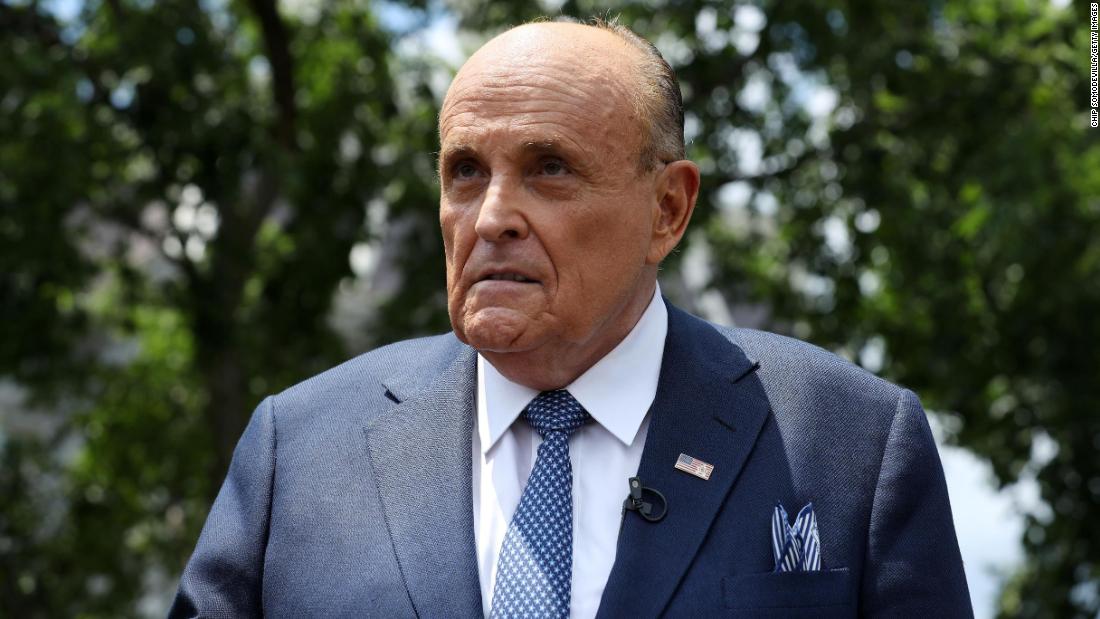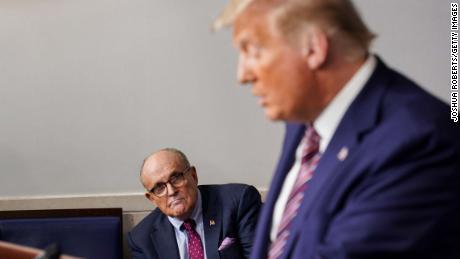How federal prosecutors are pursuing Rudy Giuliani
The potential crime, detailed on search warrants that federal agents executed on his Manhattan home and office, has often been dismissed by critics as a paperwork violation.
But legal experts say that particularly in Giuliani’s case, a charge under the Foreign Agents Registration Act, or FARA, which requires that individuals disclose with the Department of Justice lobbying activities on behalf of foreign governments or officials, should be regarded as a serious infraction, one with geopolitical implications.
In recent years, it has been used to go after other allies of former President Donald Trump, including Michael Flynn and Paul Manafort.
“A FARA violation is much more than a failure to register with DOJ,” said Daniel S. Goldman, a former federal prosecutor who was director of investigations for the House Intelligence Committee during the first impeachment of Trump, an inquiry that probed Giuliani’s efforts in Ukraine.
In Giuliani’s case, Goldman said, the set of allegations “goes to the heart of our national security and our diplomatic and foreign relations.”
Giuliani has not been charged with a crime. He has said his activities in Ukraine were done in his capacity as Trump’s lawyer and that he “never represented a Ukrainian national or official before the United States government.”
And while prosecutors appear to have enough evidence to have obtained search warrants, FARA investigations sometimes don’t result in charges.
“There has historically been reluctance [to bring such cases] because it is sometimes a challenging charge,” said Ryan Fayhee, a former national security prosecutor.
They also noted that the affidavits include “discussion of significant quantities of materials that have not been publicly revealed and were obtained pursuant to search warrants and subpoenas” as well as “information provided by individuals to the Government pursuant to subpoena or otherwise.”
However, even if Giuliani pushed Yovanovitch’s exit and pressured the Ukrainian president to announce an investigation into the Bidens to advance Trump’s interests, he would still be vulnerable to a FARA charge if he had also sought those results on behalf of a Ukrainian official, Goldman said.
“The Yovanovitch stuff is pretty clear cut, because that was a specific action that Giuliani was promoting and trying to influence the US government to do,” he said. “So if you can show that he was working on behalf of a specific business partner in Ukraine or [former Prosecutor General of Ukraine Viktor] Shokin, even if he was doing it for what he perceived to be Trump’s political benefit, it doesn’t have to be for one reason.”
Used to prosecute other Trump allies
Though FARA cases had been rare in recent decades, the Justice Department made a significant push to prioritize them in the past few years.
In 2017, former Trump national security adviser Michael Flynn pleaded guilty to lying to the FBI about conversations with Russia’s ambassador and admitted to making false statements in foreign lobbying filings about his work for Turkey. (Trump subsequently pardoned Flynn.)
In 2018, both former Trump adviser Rick Gates and former Trump campaign chairman Paul Manafort pleaded guilty to conspiracy charges in connection to FARA violations (Trump subsequently pardoned Manafort).
And in March 2019, the DOJ decided to accelerate its pursuit of foreign influence operations, in part by appointing a prosecutor who worked on special counsel Robert Mueller’s team to lead a revamped unit intended to crack down on unregistered foreign agents.
But it can be difficult to make charges stick
FARA prosecutions haven’t always worked in the government’s favor, however.
In 2019, for instance, former Barack Obama White House counsel Greg Craig was indicted and charged with two crimes: making false statements to the FARA unit and concealing material information in connection with work he performed for Ukraine.
![]()




